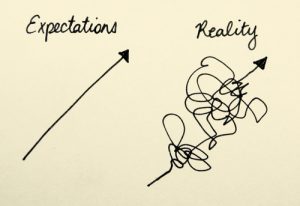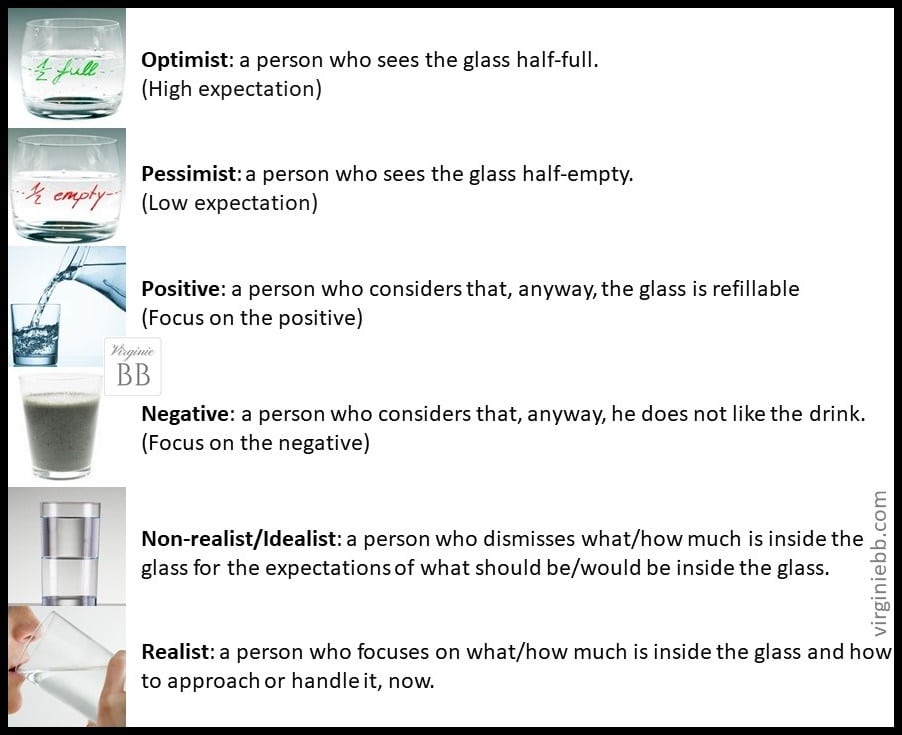Friends often tell me I am an optimist due to my outlook on life and inaccurate assimilation of my ‘optimiseur’ label with ‘optimist’.
As an optimiseur, I strive to make the best of my life and help others do the same with theirs – thanks to a positive mindset, a love of finding the most efficient and effective actions to reach my goals, and a belief in creativity.
But I am not an optimist, I am a positive and a realist.
What is the difference between an optimist and a positive?
And why do I add realism to the mix?
First, let’s take a look at how I would define an optimist and a pessimist and how their mindsets affects their views on reality:
An optimist tends to expect a positive outcome, whatever the situation or people.
A pessimist tends to expect a negative outcome, whatever the situation or people.

The key concept here is high/low ‘expectation’, with its inherent risks of non-fulfilment and disappointment. In general, expectations are dangerous. According to Buddhism, one of the keys to happiness is having no expectations: then, instead of constantly projecting into the future, one lives in the present, adjusting any decisions to the current environment to achieve one’s goals.
Both optimism and pessimism are directed towards a vision of the future, which is unpredictable. Thus, to a varying degree, an optimist and a pessimist are both non-realists (some would even say idealists). They consider situations and people as they might be or should be in their eyes rather than as they are.
Now, what of a positive or a negative individual and the effect of their way of thinking on their reality?

A positive person focuses on the positive attributes of situations and people.
A negative person focuses on the negative attributes of situations and people.
The essential element is ‘focus’. In both cases, the person is aware of the whole picture but centres his attention on specific characteristics. If this person falls into an exclusive focus and loses sight of the whole picture, he or she will become non-realist, and most probably, optimistic or pessimistic. However, if the person can retain a general awareness of the circumstances as a whole while having a specific positive/negative, this person is a realist. Such a person accepts situations and people as they are and is prepared to deal with them accordingly – with either a positive or a negative mindset.
The nuances are subtle and an example might help, so I will use the good old image of half-a-glass to illustrate my thinking:

So I believe the best way forward is to strive to be a positive realist, aiming to focus on making the best of what one has today and be grateful for it, opening opportunities for tomorrow, rather than wishing for what one might have had of what one doesn’t have. This is the key to core happiness.
I strive to be such a positive realist daily. It does not go without practice though: like everyone I have my lows, and then I work on shaking my mindset back on the right track. I still work hard toward achieving my dreams for the future, but I don’t let that cloud my present: I am grateful for what I have and wake up daily with a smile.
As usual, these reflections are my own personal empirical philosophy, but I hope you found them of interest and even of help. If so, what about you: where would you fall into these categories? I would love to know your thoughts!
Thank you for reading,
Yours, Virginie
